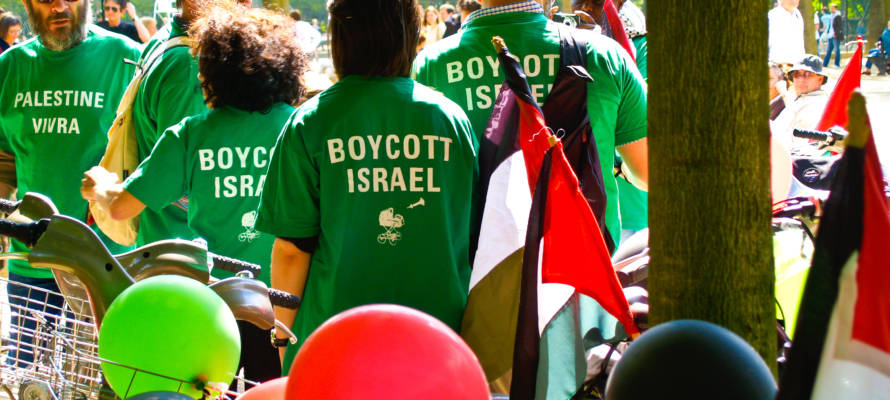To resolve a lawsuit targeting the pro-BDS National Lawyers Guild, the organization agreed not boycott Israel and adopt a new non-discrimination policy.
By Jackson Richman, JNS
Four years after the National Lawyers Guild (NLG), a legal aid group in the United States, refused to put into its dinner publication an advertisement from an Israeli organization due to NLG’s support for the BDS movement, the two groups settled a lawsuit on Tuesday filed by the Israeli entity.
The NLG cited its official “resolution barring us from accepting funds from Israeli organizations” as the reason it refused to place the ad from the Bibliotechnical Athenaeum, which is in Israel.
The Israeli organization sued the NLG through the Lawfare Project.
The settlement was approved by the New York State Supreme Court, which had already rejected two motions to dismiss by NLG.
As part of the agreement, NLG must not boycott Israel, and it will accept “a statement of organizational policy drafted by the Lawfare Project on non-discrimination which must be disseminated to NLG’s chapters, staff and committees within 60 days of the settlement,” according to The Jerusalem Post, which first reported on the settlement and also reported that “the settlement stipulates that NLG ‘affirms that no resolutions it has adopted, or adopts in the future’ violate the new non-discrimination organizational policy.”
The policy must be “prominently and indefinitely” displayed on NLG’s national website, per the settlement.
Finally, NLG is mandated to publish a new ad from the Bibliotechnical Athenaeum that “congratulates” the NLG “for reaffirming its commitment to non-discrimination.”
“This settlement makes it crystal-clear to all who seek to engage in the type of conduct BDS advocates for that such conduct is, at its core, unlawful commercial discrimination,” Benjamin Ryberg, who served as lead counsel in this case, told JNS. “This case underscores the potential consequences awaiting those who violate civil- and human-rights law by illegally discriminating against Israelis, and deters future discrimination based on national origin, citizenship, religion and all other protected classes.”
David Abrams, executive director of the Zionist Advocacy Center and a representative of the plaintiff, told JNS that “the case is important because it emphasizes that boycotts of Israel and Israelis are illegal under American laws. To be sure, organizations have the right to criticize Israeli policies.”
However, he continued, “when organizations start engaging in actual boycotts of Israeli persons and entities, they cross an important line, and those of us in the civil-rights legal community will fight them in the courts.”
